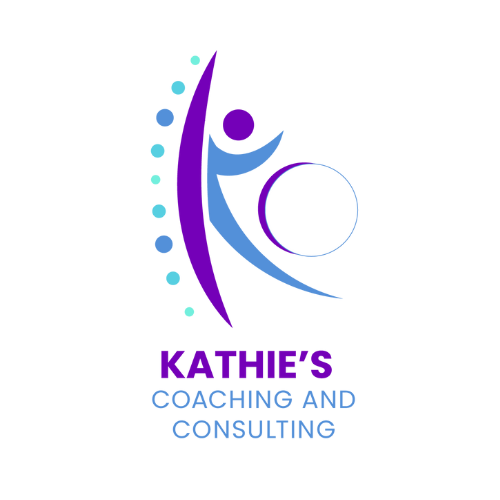The Power of Personal Development in the Workplace
Introduction
The key to staying ahead is continuous growth and improvement. Personal development is more than just a buzzword; it's a vital component of achieving professional success and overall well-being. By investing in personal development, employees can unlock their full potential, enhance their skills, and contribute more effectively to their organizations.
This blog post explores the importance of personal development in the workplace, how it leads to improved skills, increased motivation, and better job satisfaction, and provides actionable steps employees can take to invest in their growth.
The Importance of Personal Development
Personal development is a lifelong process of self-improvement, encompassing various areas such as skills, knowledge, and emotional intelligence. In the workplace, personal development is crucial for several reasons:
Career Advancement: Personal development equips employees with the skills and knowledge needed to advance in their careers. By continually improving, they become more valuable to their organizations and are better positioned for promotions and new opportunities.
Adaptability: The business world is constantly evolving, and employees who commit to personal development are better equipped to adapt to changes. They are more likely to embrace new technologies, processes, and methodologies, making them indispensable assets to their teams.
Increased Confidence: As employees develop new skills and gain knowledge, their confidence grows. This confidence translates into better performance, stronger decision-making abilities, and a greater willingness to take on challenges.
Enhanced Well-Being: Personal development also impacts overall well-being. Employees who feel they are growing and progressing in their careers are generally more satisfied and engaged, leading to reduced stress and better mental health.
How Personal Development Leads to Improved Skills, Motivation, and Job Satisfaction
Improved Skills: Personal development enables employees to hone their existing skills and acquire new ones. This continuous improvement makes them more competent and effective in their roles. For example, a marketing professional who regularly attends workshops on the latest digital marketing trends will stay ahead of industry changes and apply new techniques to their work, leading to better outcomes.
Increased Motivation: When employees see tangible progress in their personal development, their motivation levels rise. Setting and achieving personal and professional goals creates a sense of accomplishment, driving employees to push further and achieve more. Motivated employees are more likely to be proactive, take initiative, and contribute positively to the workplace culture.
Better Job Satisfaction: Personal development fosters a sense of purpose and fulfillment. Employees who feel they are growing and achieving their goals are generally happier in their roles. This satisfaction translates into higher levels of engagement and loyalty, reducing turnover rates and creating a more stable and productive workforce.
Practical Tips for Investing in Personal Development
Set Clear Goals: The first step in personal development is setting clear, achievable goals. Employees should identify what they want to achieve in their careers and break these goals down into manageable steps. For example, if an employee wants to improve their public speaking skills, they might set a goal to deliver a presentation at the next team meeting or join a public speaking group.
Seek Feedback: Constructive feedback is invaluable for personal development. Employees should actively seek feedback from colleagues, supervisors, and mentors to identify areas for improvement. Regular feedback helps employees understand their strengths and weaknesses and provides guidance on how to enhance their performance.
Pursue Continuous Learning: Personal development requires a commitment to continuous learning. Employees should seek out opportunities for professional development, such as attending workshops, enrolling in online courses, or obtaining certifications in their field. Staying current with industry trends and best practices ensures employees remain competitive and knowledgeable.
Embrace Challenges: Growth often comes from stepping outside one's comfort zone. Employees should embrace challenges and view them as opportunities for development. Taking on new responsibilities, volunteering for projects, or seeking out leadership roles can all contribute to personal growth and skill enhancement.
Network and Build Relationships: Building a strong professional network is a key component of personal development. Employees should seek out mentors, join professional organizations, and attend industry events to connect with others in their field. Networking provides opportunities for learning, collaboration, and career advancement.
Practice Self-Reflection: Regular self-reflection helps employees stay aware of their progress and areas for improvement. Employees should set aside time to reflect on their achievements, challenges, and lessons learned. This practice encourages a growth mindset and helps employees stay focused on their development goals.
Balance Work and Life: Personal development is not limited to professional skills. Employees should also focus on developing a healthy work-life balance. Prioritizing self-care, hobbies, and time with loved ones contributes to overall well-being and prevents burnout.
Conclusion
Investing in personal development is a powerful way to unlock your potential and achieve success in the workplace. By continuously improving your skills, increasing your motivation, and enhancing your job satisfaction, you can become a more effective and fulfilled professional. The benefits of personal development extend beyond individual growth; they also positively impact the organization by creating a more skilled, motivated, and engaged workforce.
Encouraging personal development within your organization fosters a culture of continuous improvement and innovation. Employees who feel supported in their growth are more likely to stay loyal to the company, contribute to its success, and become future leaders. By prioritizing personal development, both employees and organizations can achieve long-term success and create a thriving, dynamic workplace.
Take the first step today by setting clear goals, seeking feedback, and committing to continuous learning. Embrace the journey of personal development and unlock your full potential in the workplace. The rewards are limitless, and the journey is as important as the destination.










A leadership coach shares her personal journey of being fired for speaking up against toxic workplace culture, drawing parallels with Ted Lasso's themes of authentic leadership and courage. Her story illustrates how challenging systemic dysfunction often comes at a cost—but leads to greater freedom. #WorkplaceCulture #Leadership #TedLasso #ToxicWorkplace #CareerGrowth